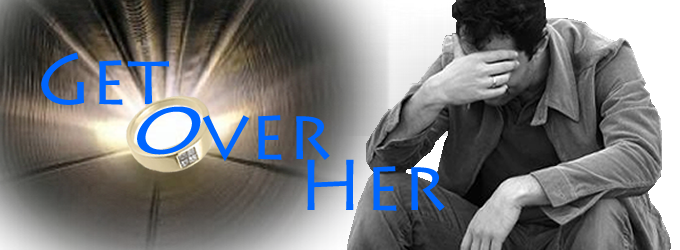|
Unfortunately, the real victims of divorce are the children involved. Many parents, although they have the ability to work with their children to make divorce easier on them, either choose not to or don't take the time to learn how. It seems common for parents to forget or ignore the major responsibilities they have to their kids because they are so involved in their own divorce process. If you have children and feel you might be headed for a divorce, take some time to educate yourself on the risks you and your children could face.
Communication
Many of the problems in children that stem from divorce exist due to a lack of communication. Many kids who currently have mental and emotional problems due to a divorce could have avoided those problems, or felt less of an impact from them, if their parents had communicated more successfully. Children, even teens, have difficulty understanding the causes and effects of divorce and therefore feel elevated senses of frustration, confusion, and depression.
Parents who communicate regularly with their children throughout a divorce can approach problems as they arise because they are actually aware of them. The more you communicate with you children, the more comfortable they will feel sharing their intimate thoughts and emotions with you. They can also feel free to share questions and problems they are currently dealing with. Their age will obviously affect how you communicate and the topics you actually discuss, but all children need that attention. It will also give them a healthy view of approaching others for help.
By simply giving your children time from your day, you will be improving the rest of their lives. It is common for people to carry emotional and mental troubles from a parental divorce all the way through life, so helping them now is the best thing you can do for them. Don't forget that you are choosing to get a divorce and they are not; they are simply the victims of the situation. A divorce is difficult on it's own, so helping your children through the process as well can be a serious challenge. If you give your children the love, patience, and understanding they deserve, they will have a much higher chance of successfully making it through the divorce without any long-lasting problems.
Young Misconceptions
One of the most powerful problems kids face when their parents are going through a divorce is misconception. Whether their misconception is about one of the parents, both of the parents, or about they themselves, they are being forced to deal with this incorrect view of the situation while also handling their constantly changing emotions.
A major misconception that many children have, particularly pre-school aged kids around three to five, is that the divorce is their fault. A child can believe something as insignificant as forgetting to clean up their room has caused a divorce; this should put into perspective the serious ways children can incorrectly assess a situation like divorce. When a child remembers that their messy room caused their parents to fight, they associate that fight with the divorce and suddenly feel responsible for the divorce. With healthy and consistent communication, you can easily, logically, and clearly explain the truth of the situation. More importantly, you can ensure the child that the divorce is not their fault.
Another common misconception of children is that one or both of the parents are abandoning them. When you are a child, your parents are your source of reality each and every day. Without them, you would be clueless. So, it is understandable that children begin to act out in different ways when they sense that one or both of their parents could abandon them forever. When one parent leaves the home, it is common for children to assume that the missing parent has abandoned them. This leads to even more misconceptions when the child either feels sadness or anger from the abandonment. No matter what specifically drives the emotions, a conversation can go a long way to reducing their negative and possibly long-lasting effects. Literally explain to them that neither you nor the other parent will ever, ever leave them. Keep telling them over time so they never forget it or think otherwise. This will help ensure feelings of security and comfort when your children think of you.
Children who are at the pre-school age can also feel as though they are being punished when they are taken back and forth from one parent's home to the other. When they are taken away from the one parent, they feel like they have misbehaved or are inadequate to the parent they are leaving. They associate the feeling of being sent away for misbehaving and therefore feel punished each time they are moved from one home to another. Again, conversations about these topics will go a long way in stopping problems before they begin. Let your kids know why it is important to spend time with both parents and how this is just the easiest way for you all to spend equal time together. Discuss the situation through a lens of fairness, keeping things simple so your children fully understand.
Reunion Attempts
Another common reaction for children of divorcing parents is to feel responsible for reuniting the parents. Whether they feel responsible for the divorce or simply want to see the parents together again, the reality is that they don't fully know why they are doing it in the first place.
Depending on the age and situation of the child, they will act out in different ways and on different levels. While some children will tend to act aggressive, angry, misbehave and attract attention, other children will attempt to be the "perfect" child. This "perfect child" situation often occurs when a child believes they are the reason for the divorce. They will act overly proper, complete every chore, and never risk agitating you. They believe that this perfect behavior will solve the problems between the parents and end the divorce. Whether your child is acting aggressively or a bit too perfectly, they are struggling with issues inside. Continue to talk with them about the divorce, how they are dealing with it, what questions they have, and why it is happening. Although it can be difficult to explain complex situations in terms they can understand, knowing you need patience is one step closer to success.
Behavior from Observation
It has been scientifically proven that children who witness their parents arguing openly in front of them deal with more behavioral problems than children who do not experience that situation. Divorce is a result of a relationship ending, so obviously every conversation you have with your ex-spouse will not be a pleasant one. This does not mean, however, that your children need to hear these unpleasant conversations. If you begin to disagree with your ex-spouse in front of your children and notice the disagreement escalating into something more intense, either save the conversation for later or move to a different room. You can even ask your child to leave the room and play somewhere else as long as you have the unpleasant conversation in private. When your children only see you and your ex-spouse interacting positively with respect and care, they will have a much better time dealing with the divorce and separation.
Ages and Responses
Children of different ages will deal with parental divorce differently. At different stages in life, children have significantly different views on the things around them, but more particularly on themselves. They are quickly learning where their emotions come from and how to deal with them, so the particular age will have an effect on their response to a divorce. Children who are in Pre-school will commonly blame themselves for their parents' divorce because they cannot think of other explanations. Children who are in elementary school commonly feel senses of grief, anger, embarrassment, loyalty to one parent or another, and even resentment for the parents. Elementary school children are aware of their emotional pain but don't actually know how to deal with it yet. Teenagers, because they have the deepest understanding of the situation, feel strong senses of anger, loneliness, guilt, depression, and fear.
The Bright Side
If there is a positive outcome of divorce aside from the basic happiness of the spouses, it is that children and parents grow closer when they live through it together. By creating a constant dialogue between you and your child, you will be building communication skills for the rest of your lives. Future problems that arise will be discussed with ease because you have already spent so much time discussing difficult issues. A connection grows because you have been through a tough time and helped each other get by. Your relationship will build stronger from the care you showed them throughout the divorce and, again, future conversations that might other wise feel awkward will happen naturally and effortlessly. By keeping yourself available and communicative to your children during your divorce, you can play a huge part in their mental health in the future.
|


